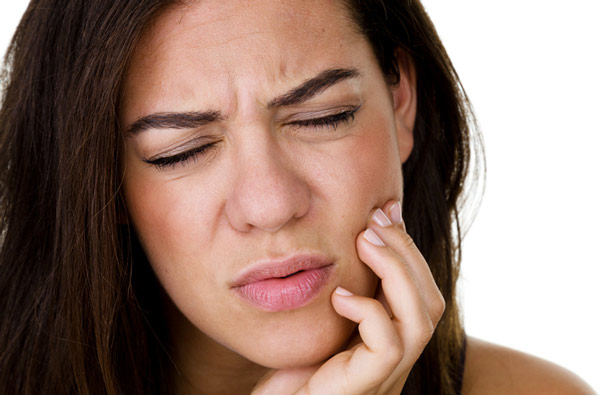TMJ in Placentia, CA Do you ever wake up with a sore jaw or a headache? You may be experiencing symptoms of TMJ. TMJ, or temporomandibular joint disorder, is a common condition that affects the jaw. The TMJ is the joint that connects your lower jaw to your skull. This joint is put to work with each chew, swallow, or yawn. Unfortunately, due to things like stress or injury, the TMJ can become strained, leading to pain and other symptoms. Do you ever wake up with a sore jaw or a headache? You may be experiencing symptoms of TMJ. TMJ, or temporomandibular joint disorder, is a common condition that affects the jaw. The TMJ is the joint that connects your lower jaw to your skull. This joint is put to work with each chew, swallow, or yawn. Unfortunately, due to things like stress or injury, the TMJ can become strained, leading to pain and other symptoms.What is TMJ?The temporomandibular joint (TMJ) is the name of a joint in your jaw. It allows you to open and close your mouth and move it from side to side. The TMJ is made up of two bones: the temporal bone and the mandible. The temporal bone is located in the skull, and the mandible is the lower jawbone. You can imagine the importance of this joint, as almost every movement of your mouth is related to it. It is one of the most used joints of our body and is also the most complex. The TMJ can be strained or injured during the movement. What Is TMD?Temporomandibular joint disorder, or TMD, is a common problem affecting your jaw muscles. This condition can cause a great deal of discomfort and pain, including sensitivity from biting down, muscle aches in the jaw, headaches, and other symptoms. If you experience pain or problems with this joint, you may have a temporomandibular joint disorder (TMD). Symptoms of TMJThere are a variety of symptoms that are associated with TMJ, and they can range from mild to severe. If you have any of the following symptoms, you may be suffering from TMJ:
Bruxism and TMJWhen the misaligned TMJ joints are irritated, overworked muscles and nerves result in the above adverse effects. Teeth grinding, a clinical condition known as bruxism, is common among individuals whose facial muscles have become excessively tense. This may not be a symptom; rather, it is a contributing factor that leads to bruxism. Bruxism makes your teeth more susceptible to damage and increases the risk of tooth erosion, decay, and other dental problems. In severe cases, frequent grinding can even cause dental fractures or cracks in the teeth. You can try several strategies to prevent bruxism from causing further damage to your oral health. One simple strategy is to avoid foods and beverages that trigger jaw clenching or teeth grinding. For example, limiting the consumption of caffeinated drinks like coffee or soda may help reduce symptoms of bruxism. Additionally, chewing gum or using a mouthguard while sleeping can help keep your jaw relaxed overnight and prevent grinding during sleep. TMJ And Sleep Apnea ConnectionApproximately 43 percent of patients with TMJ also experience sleeping problems. When the airway narrows, the body responds by pushing the lower jaw forward. The constant back-and-forth movement can cause tension and stress on the jaw joints. Sleep apnea is a very disturbing sleep disorder. It can cause headaches, high blood pressure, and other serious health problems. Don't delay - seek out the help of a medical professional today! You can finally get restful sleep with proper treatment and management of both conditions. Causes of TMJThere are a few different things that can contribute to developing TMJ, such as:
How Is TMJ Treated?There is no single treatment that works for everyone, but depending on the cause and severity of your TMJ symptoms, your healthcare provider may recommend one or more of the following options:
Our office also offers Botox as a treatment for TMJ, to help with pain levels. At Placentia Oral Surgery, Young Jun, DDS, MD, FACS will work with you to develop a personalized treatment plan for addressing your TMJ symptoms, so you don't have deal with the discomfort of declining oral and dental health. |